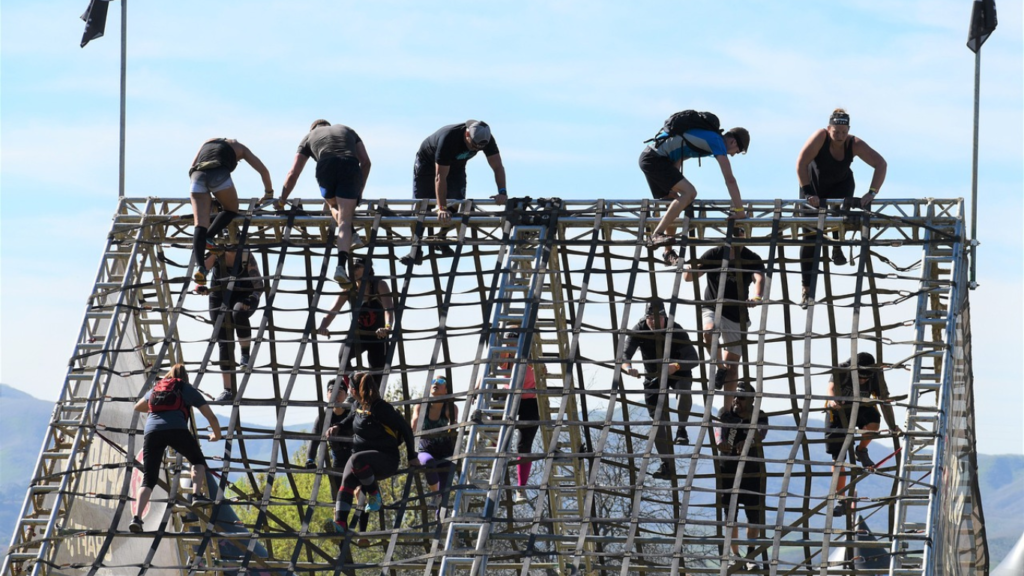Grant writing is a sought-after skill in 2024, with nonprofits, researchers, and organizations competing for limited funding. Yet, breaking into this field can be intimidating. How do you begin? What skills do you need? And how do you make your proposals stand out? If you’re grappling with these questions, you’re not alone.
Whether you’re transitioning careers, looking to expand your freelance portfolio, or simply exploring a rewarding profession, this blog will guide you through the essential steps of how do you become a grant writer. We’ll explore how to develop grant writing skills, craft compelling proposals, and build a successful career in grant writing. By the end, you’ll have actionable insights to kickstart your journey.
Understanding the Role of a Grant Writer
What Does a Grant Writer Do?
A grant writer’s primary role is to connect organizations with funding opportunities. This involves crafting persuasive proposals to secure grants from private foundations, government agencies, and other funding sources. Tasks often include:
- Researching potential grant opportunities.
- Analyzing funders’ priorities and aligning them with organizational goals.
- Writing detailed proposals, budgets, and supporting documentation.
- Managing deadlines and submission requirements.
Who Needs Grant Writers?
Grant writers are invaluable for organizations that rely on external funding, such as:
- Nonprofits: From community programs to global initiatives, nonprofits need funding to sustain their work.
- Educational Institutions: Schools, colleges, and universities often seek grants for research, infrastructure, and scholarships.
- Healthcare Providers: Hospitals and clinics apply for grants to improve facilities and services.
- Artists and Researchers: Independent creators and academics may require grants for projects or research.
Why Is the Role So Important in 2024?
As funding opportunities grow more competitive, the demand for skilled grant writers has increased. Organizations with clear, professional proposals are more likely to secure grants, making grant writers an indispensable part of their teams.
Challenges Grant Writers Face
- Understanding Funders’ Requirements: Each grant has unique guidelines that must be followed precisely.
- Standing Out in a Crowded Field: Many organizations compete for the same grants, so proposals must be exceptional.
- Managing Tight Deadlines: Balancing multiple applications and schedules can be overwhelming without strong organizational skills.
Essential Grant Writing Skills to Develop

To excel in grant writing, you need more than just writing talent. It’s a multifaceted role requiring a mix of technical, analytical, and interpersonal skills. Here’s a breakdown of the most critical grant writing skills:
Research and Analytical Skills
- Finding Opportunities: Successful grant writers know how to identify the right funding opportunities. This involves scouring grant databases, networking with funders, and staying updated on industry trends.
- Analyzing Funders’ Goals: It’s essential to study funding organizations to understand their objectives. Aligning a proposal with their mission significantly increases the chances of approval.
Writing and Storytelling
- Crafting Clear Proposals: Grant writers must present complex ideas in a way that’s accessible and compelling to funders.
- Using Persuasive Language: Highlighting an organization’s impact and urgency requires the ability to evoke emotion and showcase tangible results.
- Avoiding Jargon: While industry terms are sometimes necessary, clear communication always takes precedence.
Organizational and Time-Management Skills
- Balancing Deadlines: Managing multiple applications with varying requirements is common in grant writing.
- Detail-Oriented Planning: Missing a single guideline can disqualify a proposal. Attention to detail is crucial for success.
Interpersonal Skills
- Collaboration: Grant writers often work closely with stakeholders, including program directors, finance teams, and external partners.
- Relationship-Building: Establishing rapport with funders can make a significant difference in long-term success.
By focusing on these skills, you can position yourself as a capable and reliable grant writer in a competitive field.
how do you become a grant writer Key Steps

Becoming a grant writer involves a combination of education, hands-on experience, portfolio-building, and strategic networking.
Below is a detailed roadmap to guide you through each step of the journey.
Step 1: Educate Yourself
While you don’t always need formal qualifications to become a grant writer, having the right educational background can set you apart and equip you with the knowledge necessary for success.
Degrees
Although specific degrees aren’t mandatory, certain fields provide a strong foundation for grant writing:
- Communications and English: These programs enhance writing and persuasion skills, critical for crafting compelling proposals.
- Nonprofit Management: This degree helps you understand how nonprofits function, including their funding needs and challenges.
- Public Administration: Ideal for those targeting grants in the public sector, this degree provides insights into government processes and policies.
Certifications
Professional certifications demonstrate your commitment to the field and add credibility to your profile:
- Grant Professional Certified (GPC): This highly regarded certification is offered by the Grant Professionals Certification Institute. It validates your expertise and enhances your marketability.
- Foundation Center Training Programs: Their in-person and online courses cover grant writing essentials and research techniques.
Online Courses
Platforms like Coursera, Udemy, and LinkedIn Learning offer affordable and flexible training in grant writing:
- Examples of Courses:
- “Grant Writing for Beginners” on Udemy.
- “Fundraising and Development Specialization” on Coursera.
- “Successful Grant Writing Strategies” on LinkedIn Learning.
- Benefits: You can learn at your own pace and gain up-to-date insights on funding trends and best practices.
Books and Resources
- Recommended Reading: Books such as The Only Grant-Writing Book You’ll Ever Need by Ellen Karsh and Arlen Sue Fox provide comprehensive insights.
- Free Resources: Websites like Grants.gov and local library databases offer free tutorials and guides.
Step 2: Gain Experience
Experience is key to becoming a competent grant writer. Even if you’re starting from scratch, there are ways to build your skills:
Volunteer with Nonprofits
Many nonprofit organizations are understaffed and welcome assistance with grant applications:
- Opportunities: Reach out to small or local nonprofits that lack dedicated grant writers.
- Advantages: Gain practical experience while making a meaningful contribution to a cause you care about.
Work as an Intern
Internships provide hands-on training and exposure to real-world grant writing:
- Where to Look: Universities, healthcare institutions, and nonprofits often offer internships in grant writing or fundraising.
- Potential Outcomes: A successful internship can lead to job offers or valuable recommendations.
Practice Writing Proposals
You don’t need to wait for a job to start crafting grant proposals:
- Create Sample Proposals: Use templates or online examples to draft mock proposals.
- Seek Feedback: Share your samples with mentors or experienced grant writers for constructive critique.
- Focus Areas: Include a clear problem statement, objectives, and a budget breakdown in your proposals.
Join Volunteer Platforms
Websites like Catchafire and VolunteerMatch connect skilled professionals with nonprofits needing assistance, offering real-world experience.
Step 3: Build Your Portfolio
A well designed portfolio is crucial for showcasing your skills and experience to potential clients or employers.
Highlight Successful Grants
- What to Include: Showcase any grants you’ve helped secure, including the amount funded and the projects supported.
- Quantify Your Impact: Include statistics and outcomes to emphasize your success rate.
Include Diverse Projects
A versatile portfolio can demonstrate your ability to handle various types of grants:
- Different Sectors: Include examples from education, healthcare, arts, and community programs.
- Variety of Funders: Showcase proposals written for government grants, private foundations, and corporate sponsors.
Provide References and Testimonials
Feedback from past clients or employers can strengthen your credibility:
- Ask for Testimonials: Request a brief statement highlighting your skills and professionalism.
- Contact Information: Include references who can vouch for your abilities.
Create an Online Presence
- Build a Website: A personal website can serve as an online portfolio and marketing tool.
- Use LinkedIn: Share samples and success stories on your profile to attract attention from potential clients.
Step 4: Network in the Industry
Building relationships is critical for learning about opportunities and gaining mentorship in the grant writing world.
Join Professional Associations
- Grant Professionals Association (GPA): Offers networking opportunities, webinars, and an annual conference.
- Association of Fundraising Professionals (AFP): Provides resources and certification programs for grant writers and fundraisers.
Attend Events
Workshops, webinars, and conferences are excellent for learning and meeting industry professionals:
- Local Events: Check community centers or universities for grant-writing workshops.
- National Conferences: Events like the GPA Annual Conference bring together grant writing experts and funders.
Engage Online
Online platforms provide access to a global community of grant writers and nonprofits:
- LinkedIn Groups: Join groups like “Nonprofit Grant Writers” or “Fundraising and Development.”
- Reddit Communities: Participate in subreddits like r/nonprofit or r/fundraising for advice and collaboration.
- Facebook Groups: Look for niche groups dedicated to grant writing tips and networking.
Find a Mentor
A seasoned grant writer can guide you through challenges and offer valuable advice:
- How to Find a Mentor: Reach out through professional associations, LinkedIn, or alumni networks.
- Benefits: Mentors can provide constructive feedback, share their experiences, and help you grow professionally.
Grant Proposal Tips for Beginners

Writing a compelling proposal can feel daunting, especially for beginners. Here are practical grant proposal tips to improve your success rate:
Tailor Each Proposal
- Understand the Funder’s Mission: Research the funder’s goals and align your proposal accordingly.
- Customize Language and Tone: Proposals should resonate with the specific audience reviewing them.
Be Clear and Concise
- Define Objectives Clearly: Explain what the grant will accomplish and why it’s essential.
- Focus on Outcomes: Funders want to see measurable results. Use data and projections to illustrate impact.
Avoid Common Mistakes
- Skipping Guidelines: Ensure you follow every instruction in the Request for Proposal (RFP).
- Using Fluff: Funders value substance over length. Avoid unnecessary details.
- Rushing the Submission: Always leave time for thorough proofreading.
Proofread and Edit
A polished proposal demonstrates professionalism:
- Use tools like Grammarly to catch errors.
- Have a colleague or mentor review the draft for feedback.
With practice and these strategies, your proposals will become more effective, increasing your chances of securing funding.
Career Opportunities as a Grant Writer
The field of grant writing offers a variety of career paths. Whether you prefer working as an employee or freelancing, there’s ample opportunity to carve out a niche.
Employment Opportunities
Many organizations employ full-time grant writers, providing a stable career path. Here are some common sectors where grant writers are in demand:
- Nonprofit Organizations: Many nonprofits rely heavily on grants for funding, making grant writers essential team members.
- Educational Institutions: Universities and research institutions require grant writers to secure funding for projects and scholarships.
- Healthcare Organizations: Hospitals and clinics often hire grant writers to obtain funds for infrastructure, research, and community programs.
- Government Agencies: These roles involve preparing proposals for public funding and managing grant programs.
Freelance Opportunities
Freelancing is an attractive option for those seeking flexibility:
- Diverse Clientele: Freelancers can work with multiple clients across different industries.
- Higher Earning Potential: Experienced freelancers can charge premium rates for their services.
- Work-Life Balance: You can manage your own schedule and workload.
Salary Expectations
Grant writing salaries vary depending on experience, location, and industry:
- Entry-Level Positions: Around $40,000–$50,000 annually.
- Experienced Professionals: Salaries can exceed $80,000, especially in competitive markets.
- Freelancers: Hourly rates range from $50 to $150, depending on expertise and project complexity.
Career Growth
- Senior Grant Writer: Oversee larger projects and manage teams.
- Development Director: Take on broader fundraising responsibilities.
- Consultant: Provide expert advice and training to organizations.
Challenges and How to Overcome Them

Despite its rewards, a career as a grant writer isn’t without obstacles. Here are some common challenges and strategies to overcome them:
Dealing with Rejection
Not every proposal will be successful, and rejection is part of the process.
Strategy: Treat rejection as a learning opportunity. Analyze feedback, refine your approach, and improve for the next application.
Staying Current with Trends
The grant landscape is constantly changing, with new funding priorities and regulations.
Strategy: Subscribe to industry newsletters, attend workshops, and participate in professional associations to stay informed.
Managing Workload
Balancing multiple deadlines can be stressful.
Strategy: Use project management tools like Trello or Asana to organize tasks and maintain schedules.
Building Credibility as a Beginner
New grant writers may struggle to gain trust without a proven track record.
Strategy: Start small by volunteering or interning with nonprofits. Success in smaller grants will build your portfolio and credibility.
Tools and Resources for Aspiring Grant Writers
The right tools and resources can streamline your workflow and improve your efficiency as a grant writer.
Grant Databases
Finding funding opportunities is easier with these platforms:
- GrantStation: A comprehensive database of funding sources.
- Foundation Directory Online: Ideal for researching private foundations.
- Grants.gov: The go-to platform for U.S. federal grants.
Writing and Editing Tools
- Grammarly: Ensure your proposals are error-free.
- Hemingway App: Simplify complex sentences and improve readability.
- Microsoft Word or Google Docs: Draft and format your proposals professionally.
Project Management Tools
- Trello: Organize tasks and deadlines visually.
- Asana: Manage projects and collaborate with teams.
- Slack: Communicate effectively with stakeholders.
Learning Resources
- Books on Grant Writing: “The Only Grant-Writing Book You’ll Ever Need” by Ellen Karsh and Arlen Sue Fox.
- Online Courses: Platforms like Udemy, Coursera, and LinkedIn Learning offer affordable and flexible courses.
- Professional Associations: Join groups like the Grant Professionals Association (GPA) for networking and continuing education.
Networking Opportunities
- Webinars and Workshops: Stay updated and connected with experts in the field.
- Local Meetups: Build relationships with nonprofits and other grant writers in your area.
- Social Media Groups: Engage with the grant writing community on LinkedIn and Facebook.
Conclusion
A career in grant writing can be both rewarding and impactful. By developing essential skills, learning the art of proposal writing, and leveraging the right tools and resources, you can confidently answer the question, “How do you become a grant writer?” Whether you aim for a stable position or a flexible freelance role, the key lies in continuous learning and persistence.
Grant writing is more than just a profession—it’s a way to drive positive change by connecting organizations with the funding they need to thrive. Take the first steps today, and with time and effort, you’ll build a successful and fulfilling career in this dynamic field.
FAQs – Frequently Asked Questions
1. How long does it take to become a skilled grant writer?
Becoming proficient in grant writing varies depending on your background and dedication. With focused learning and hands-on experience, many people achieve a solid skill set within 6–12 months. Advanced expertise may take several years, especially as you work on complex projects and build a portfolio.
2. Do you need a degree to become a grant writer?
No formal degree is required to become a grant writer. However, having a degree in fields like English, communications, public administration, or nonprofit management can provide a helpful foundation. Certifications and online courses also add credibility and expertise.
3. Can grant writers specialize in a particular field?
Yes, many grant writers choose to specialize in specific industries such as healthcare, education, or arts and culture. Specialization allows writers to develop deeper knowledge of funders’ priorities and industry-specific terminology, which can improve their success rate.
4. How do grant writers get paid—hourly or per project?
Grant writers can be paid hourly, per project, or on a retainer basis, depending on the agreement. Freelancers often charge between $50 and $150 per hour or a flat fee based on the project’s complexity and scope. Salaried grant writers earn a steady annual income.
5. What happens after a grant proposal is submitted?
After submission, the funding organization typically reviews the proposal, which may involve multiple stages of evaluation. The process can take weeks to months. During this time, they may request additional information or clarifications. If awarded, grant writers often help with reporting and compliance to ensure proper use of funds.

